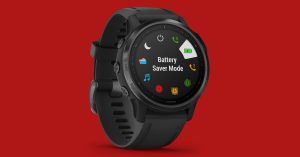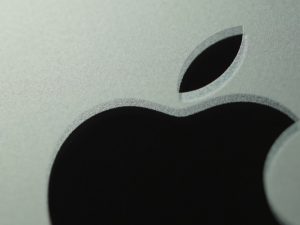January 13 used to be a pretty eventful day, on the very least for pre-pandemic times. Cory Booker dropped out of the presidential crawl. LSU trounced Clemson in the faculty soccer nationwide championship game. Attorney traditional William Barr asked Apple to liberate an iPhone. And Google pushed out a apparently limited tweak to the contrivance in which it shows search adverts for desktop pc programs.
Beforehand, the quest engine had marked paid outcomes with the notice “Ad” in a green field, tucked under the headline subsequent to an identical green demonstrate URL. Now, all of a unexpected, the “Ad” and the URL shifted above the headline, and each and each had been rendered in discreet murky; the sector disappeared. The organic search outcomes underwent a identical makeover, excellent with a brand new favicon subsequent to the URL as an different of the notice “Ad.” The tip end result used to be a conventional smoothing: Commercials seemed fancy no longer-adverts. No longer-adverts seemed fancy adverts.
Dim Patterns is made conceivable by Omidyar Network. All WIRED affirm material is editorially objective and produced by our journalists.
This used to be no longer Google’s first time playing with the quest outcomes interface. In truth, it had performed so moderately continually over the last 13 years, as handily specified by a timeline from the news space Search Engine Land. Each and each iteration whittled away the honour between paid and unpaid affirm material that critical extra. Most adjustments went fairly uncared for, cyber internet residents accepting the gallop fancy the apocryphal frog in a slowly boiling pot.
However in January, amid rising antitrust drumbeats and traditional exhaustion with Huge Tech, other folks seen. Interface designers, entrepreneurs, and Google customers alike decried the replace, pronouncing it made paid outcomes practically indistinguishable from those that Google’s search algorithm served up organically. The phrase that got here up most in general: “darkish sample,” a blanket term coined by UX specialist Harry Brignull to checklist manipulative create aspects that profit companies over their customers.
“We behavior a whole lot of thousands of quality checks and experiments every 300 and sixty five days to make certain that that every product replace makes Search extra worthwhile and improves the user journey,” a Google spokesperson said in a commentary to WIRED. “Google is an alternative chief in the case of providing unambiguous advert labeling, guided by intensive study that shows that these labels attend other folks clearly distinguish between paid and organic affirm material.”
That a limited create tweak may maybe presumably maybe encourage so critical backlash speaks to the profound influence Google and other ubiquitous platforms be pleased—and the responsibility that internet page confers to them. “Google and Facebook shape realities,” says Kat Zhou, a product clothier who has created a framework and instrument equipment to attend promote moral create. “College students and professors flip to Google for their study. Other folk flip to Facebook for political news. Communities flip to Google for Covid-19 updates. In some sense, Google and Facebook be pleased change into arbiters of the truth. That’s particularly frightening if you factor in their alternate fashions, which in general incentivize blurring the line between news and adverts.”
Google’s no longer the suitable search engine to blur this line. If something, Bing is a long way extra opaque, sneaking the “Ad” disclosure under the header, with excellent a faint justify to draw attention. Here’s what a Bing look for for DoorDash will get you:
Tricksy! You are going to look for the concept field on the righthand facet, too. However Google has round 92 percent of world search market portion. It effectively is on-line search.
Dim patterns are all too general on-line in traditional, and January wasn’t the first time other folks accused Google of deploying them. In June 2018, a blistering file from the Norwegian Client Council realized that Google and Facebook each and each venerable explicit interface decisions to strip away user privacy at nearly every flip. The perceive info how each and each platforms conducted the least privacy-pleasant choices by default, consistently “nudged” customers in opposition to freely giving extra of their recordsdata, and extra. It paints a portrait of a gadget designed to befuddle customers into complacency.
That confusion reached its apex a few months later, when an Related Press investigation realized t



